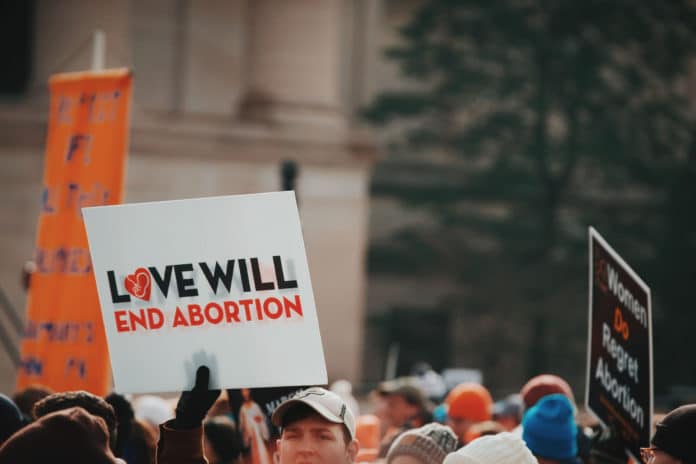
(The Daily Signal) — Over 60% of women who aborted their unborn baby reported high levels of pressure from other sources, a new peer-reviewed study from the Charlotte Lozier Institute found. And that same group of women also reported higher levels of mental health struggles and quality of life issues following the abortion.
The study, published in the Cureus medical journal, is one in a series of “Unwanted Abortion Studies” from the Charlotte Lozier Institute, the research arm of Susan B. Anthony Pro-Life America.
“We surveyed women between 41 and 45 years of age, so they had had most of their reproductive life, and we asked about their experiences with pregnancy and abortion,” David Reardon, Ph.D., a Lozier Institute associate scholar and lead author of the new study, shared with The Daily Signal. “And of those women, we had 226 who reported a history of abortion.”
“Over 60% reported that they felt very much pressured to abort by either their male partner, family members, other people, circumstances,” he added. “The feeling of pressure to abort was strongly correlated with more negative feelings after the abortion and more mental health problems that they attributed to the abortion specifically.”
Women who said that they were pressured into an abortion also said that they experienced significant levels of negative emotions related to the abortion; intrusive thoughts, including flashbacks to their abortion; frequent feelings of loss, grief, and sadness; and increased levels of stress answering questions about their abortion.
“Abortion clinics cannot claim to be pro-woman while at the same time allowing the majority of their clients to be pressured into unwanted abortions,” Reardon said in a statement.
“In a country torn by political debate over abortion, surely these findings underscore one point on which we should all be able to agree,” he added. “No woman should ever feel pressured into accepting an unwanted abortion. Clearly, abortion clinics need to provide better pre-abortion screening and counseling in order to prevent unsafe and unwanted abortions.”
The study was conducted using online survey tools surveying 1,000 women between the ages of 41 and 45 with a 96% completion rate. The Lozier Institute notes that those women who said they had an abortion were four times more likely to drop out of the survey once they had to answer more questions about their abortion experience —compared to the women who did not say they had an abortion and had to answer more questions about their pregnancy experiences.
“Even with our high participation rate, women with a history of abortion reported higher levels of stress completing the survey than other women, which is most likely why they were most likely to drop out before completing the survey,” Reardon said. “This is why surveys about abortion will always underreport negative outcomes. It is precisely the women feeling the most negative emotions who are most likely to not want to talk about it.”
















